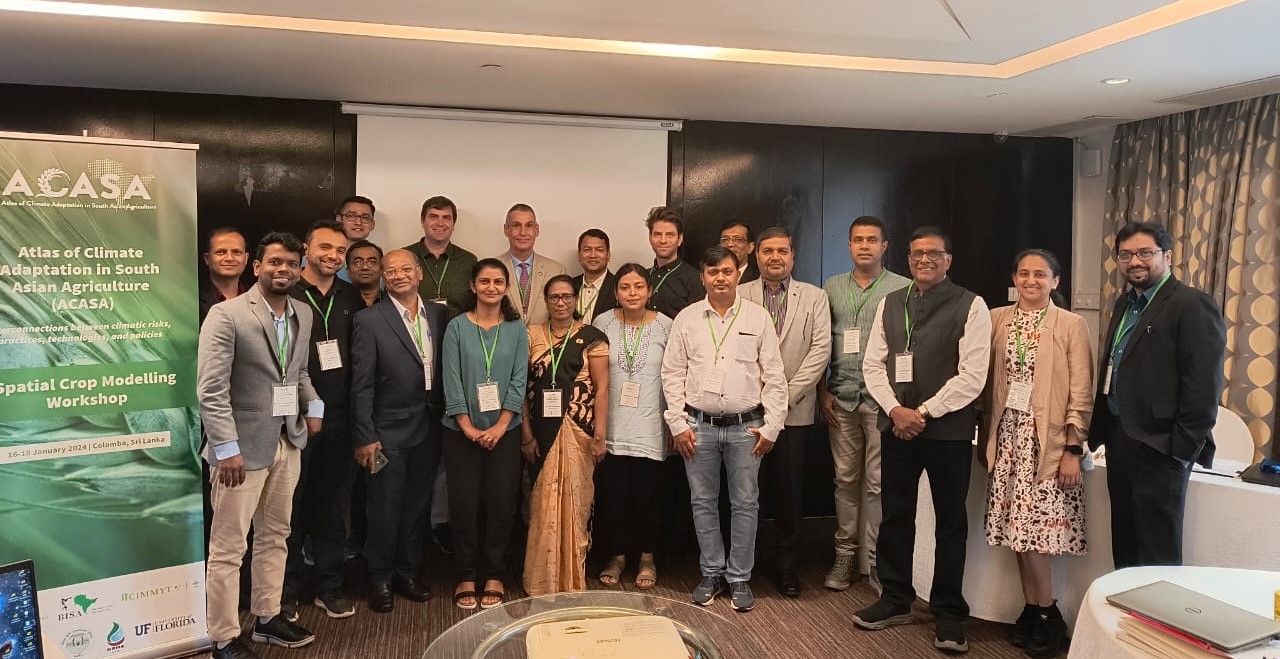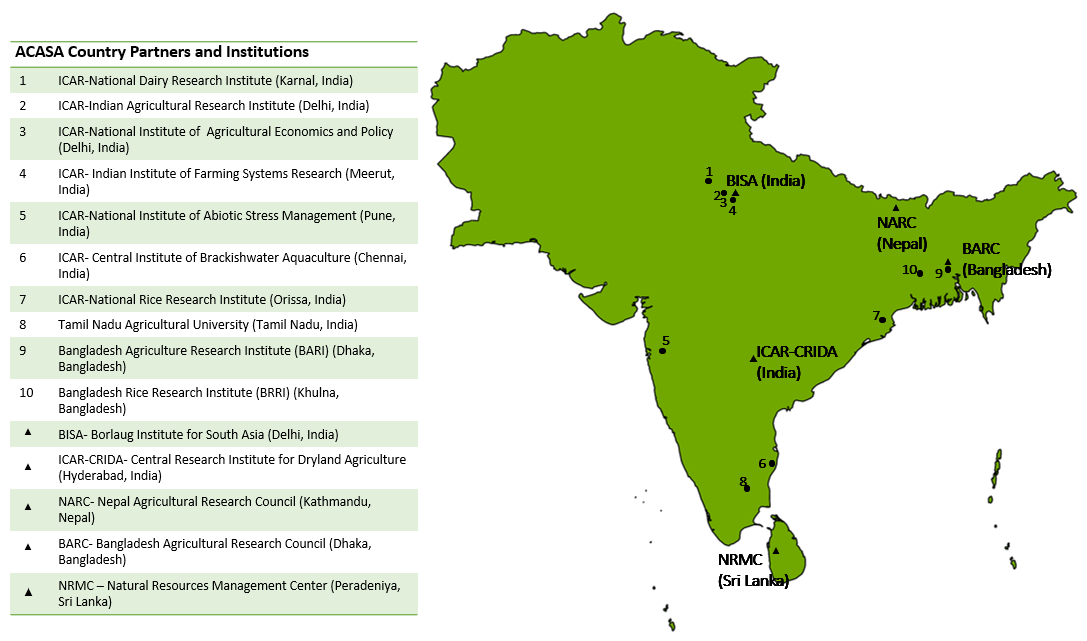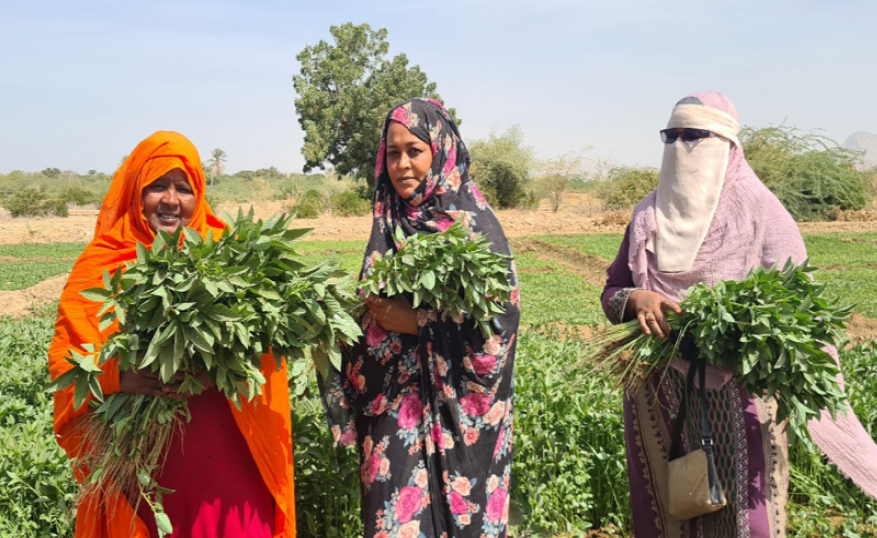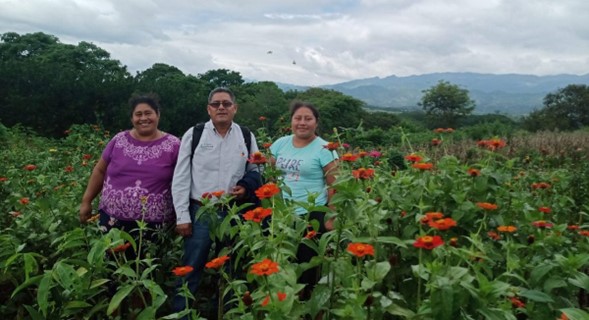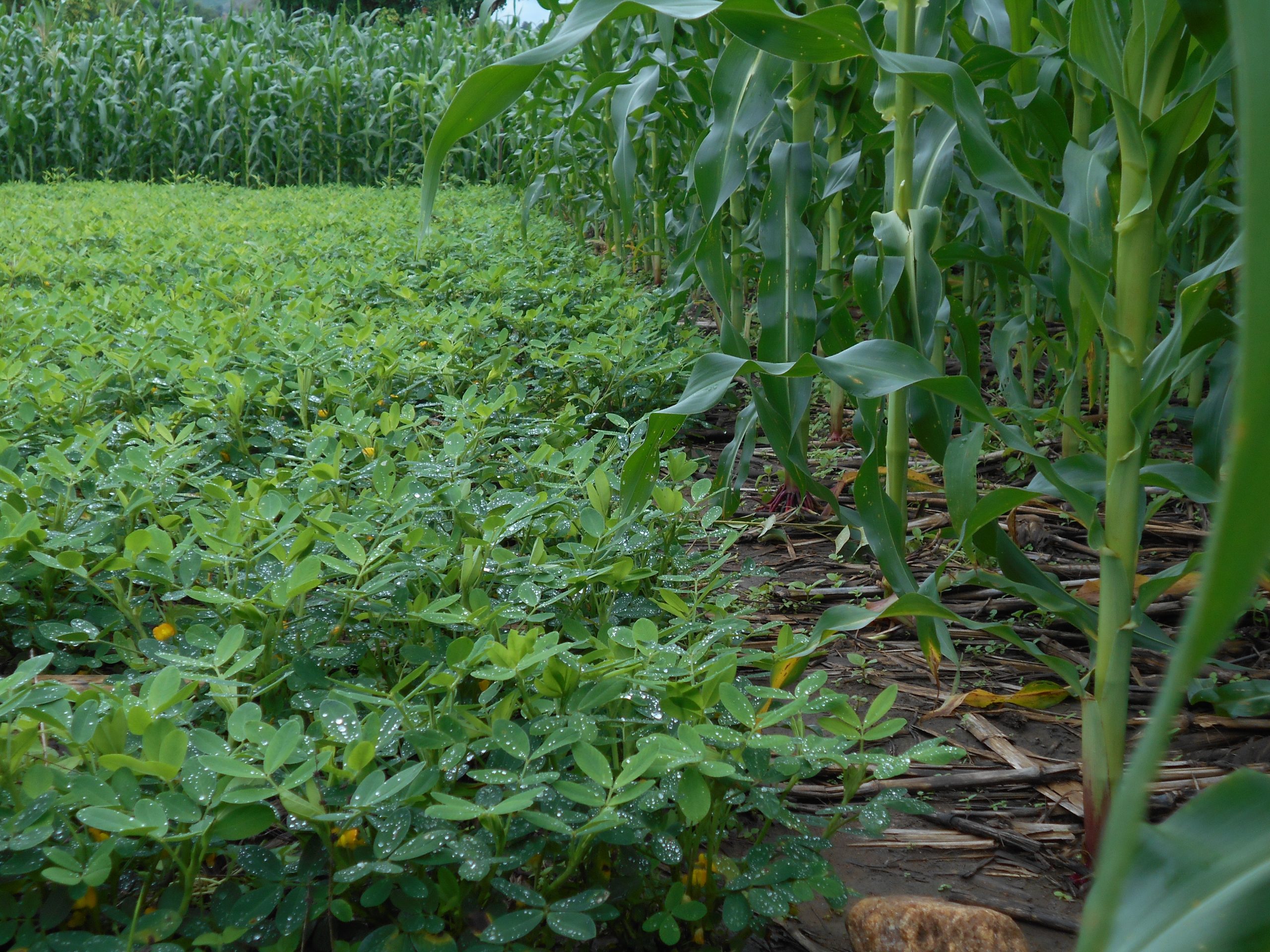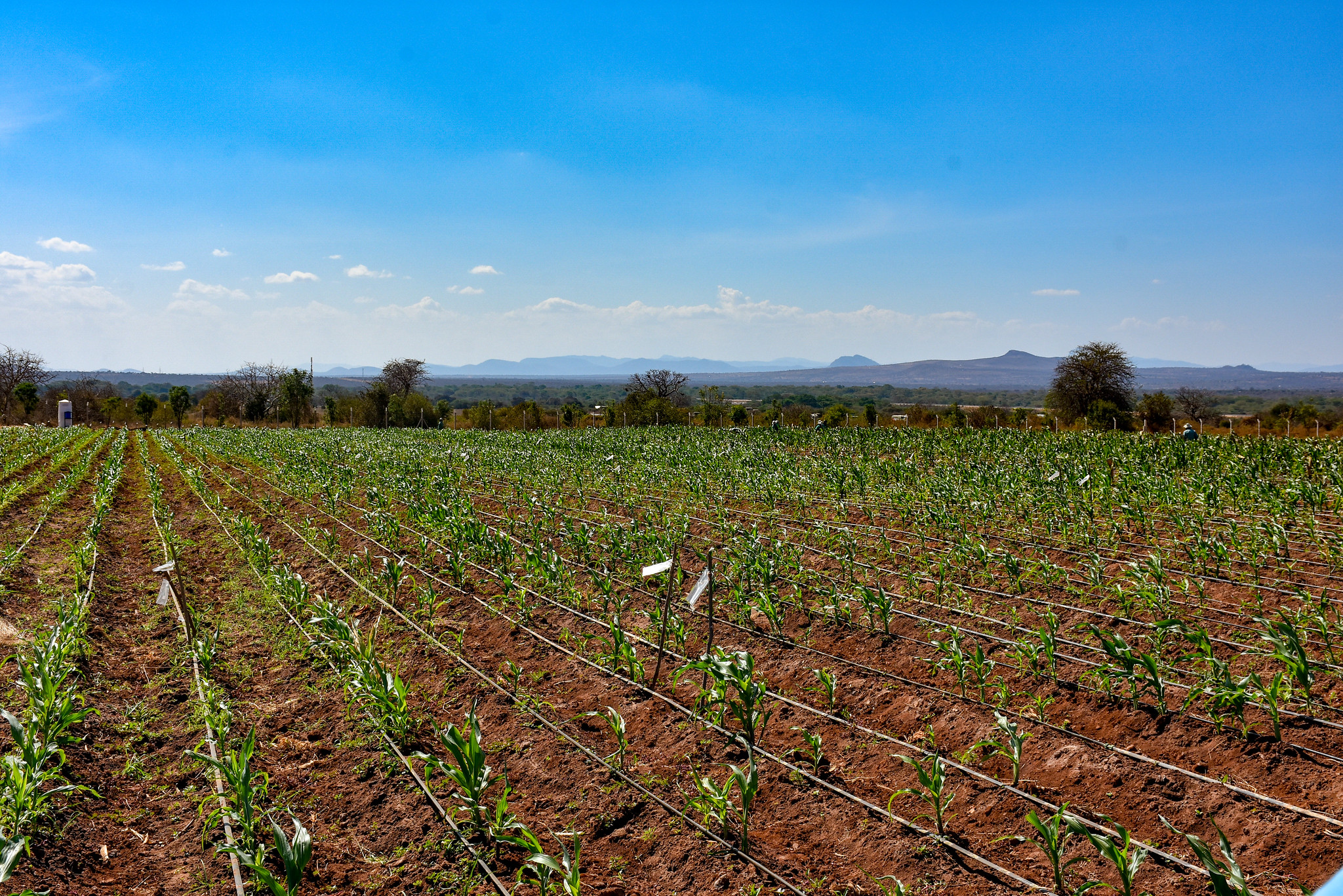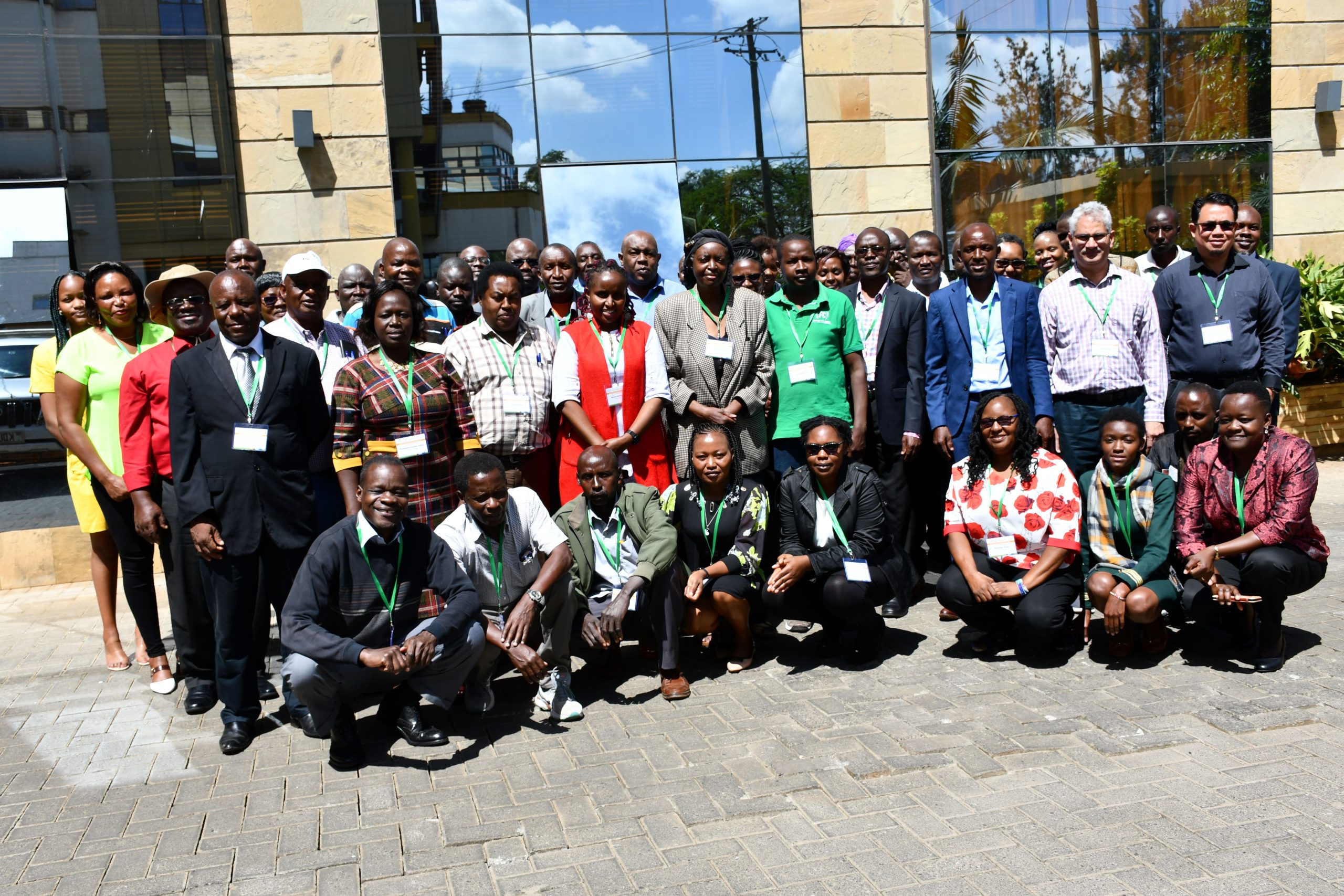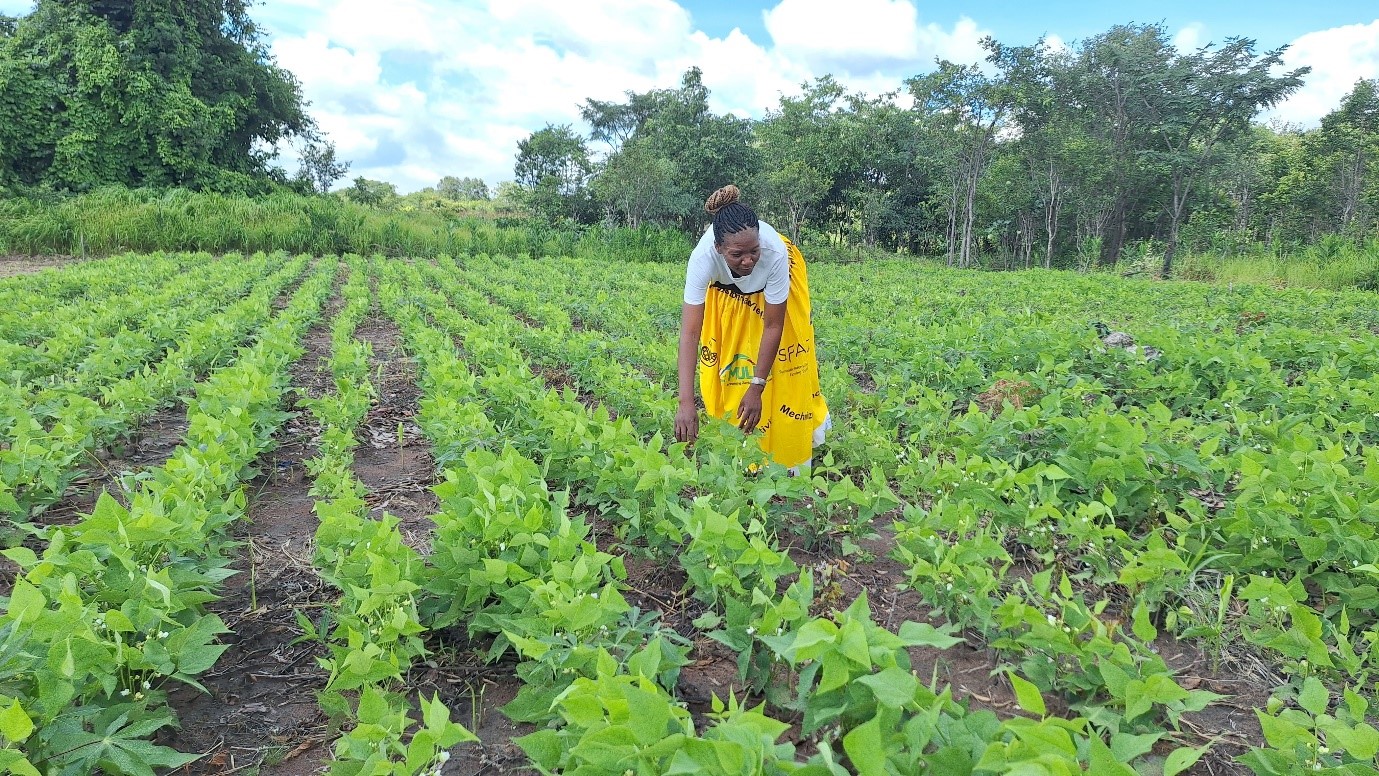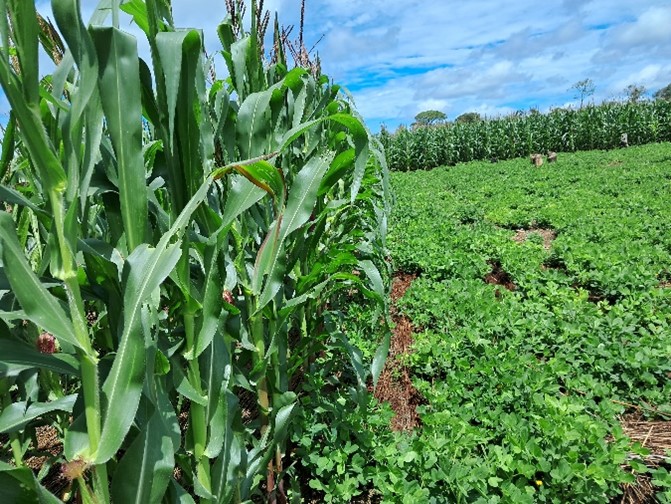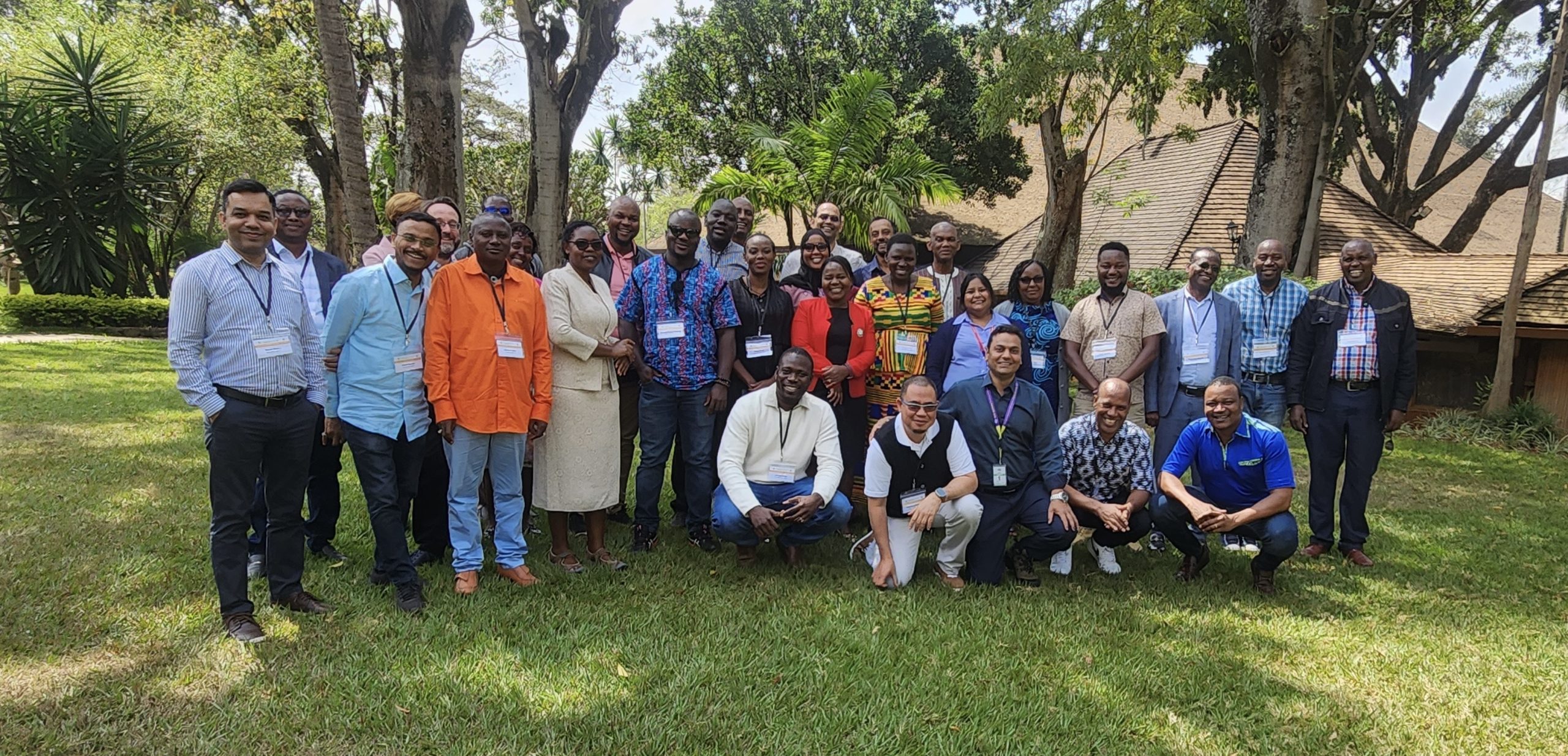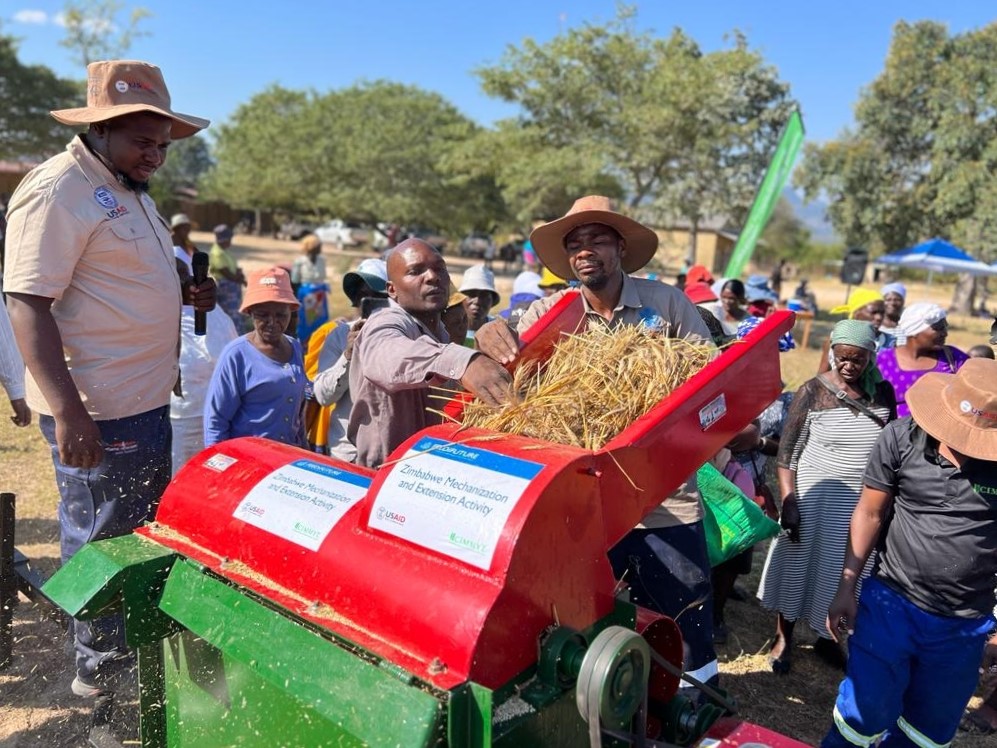Blogs
Gridded crop modeling to simulate impacts of climate change and adaptation benefits in ACASA
 Climate adaptation and mitigation
Climate adaptation and mitigation
Gridded crop modeling builds an understanding of how climate change impacts crops, helping researchers to adapt agricultural methods and combat food insecurity.
Harnessing econometric and statistical tools to support climate-resilient agriculture
 Innovations
Innovations
Econometric and statistical methods lead to informed decision-making and safeguard agricultural productivity in the face of climatic hazards in South Asia.
Unlocking insights from literature: exploring adaptation options in ACASA
 Innovations
Innovations
Using Systematic Literature Review, ACASA has identified key climate adaptation options and assessed their effectiveness.
Greater successes through NARS partnerships
 Climate adaptation and mitigation
Climate adaptation and mitigation
BISA has been an exemplary partner in building and supporting a strong ACASA team and establishing strong, financially supported partnerships with NARS.
Women farmers enhance agricultural production in conflict-torn Sudan
 Capacity development
Capacity development
In conflict-torn Sudan, women farmers are equipped with new skills and sustainable techniques to cultivate hope and abundance—doubling yields and empowering communities toward self-sufficiency.
Flowers, learning, and a gender-based approach
 Capacity development
Capacity development
“We learned how to grow flowers in one module, and now we’re making a living from it,” says a farmer from Chiapas. Here’s her story.
Sustaining Conservation Agriculture initiatives: lessons from Malawi
 Climate adaptation and mitigation
Climate adaptation and mitigation
Conservation Agriculture offers sustainable solutions for Malawi’s agriculture. Prioritizing farmer-centered approaches can drive widespread adoption, ensuring food security and climate resilience.
Digging in the Dirt: Detailed soil maps guide decision-making, from the field to the policy room
 Climate adaptation and mitigation
Climate adaptation and mitigation
It’s not just dirt. Soil health is a key component in agricultural sustainability.
Be Vocal, Be Authentic, Occupy Spaces
 Gender equality, youth and social inclusion
Gender equality, youth and social inclusion
Environmental scientist Megan Wilkerson shares her inspiring career journey, and how she actively works to dismantle barriers in the STEM arena. To succeed in a scientific career, she suggests fostering a supportive network, staying true to one’s purpose, and being authentic
Collaboration across the seed system value chain
 Climate adaptation and mitigation
Climate adaptation and mitigation
Stakeholders call for a holistic approach to managing Kenya’s dryland crop seed system for sustainability and food security.
Sow, grow, and thrive: a pathway to improve cassava farming in Zambia
 Climate adaptation and mitigation
Climate adaptation and mitigation
SIFAZ is shifting farmer mindsets towards promoting sustainable practices that not only improve cassava yields but minimize physical labor.
A tale of two worlds: contrasting realities in southern and northern Zambia during El Niño
 Climate adaptation and mitigation
Climate adaptation and mitigation
El Niño has contributed to starkly different weather patterns in northern and southern Zambia. On World Water Day 2024, this piece navigates the complex challenge of mitigating water abundancy and scarcity through different agricultural practices that support livelihoods and food security.
Peace through agriculture is possible – that’s my battle cry
 Gender equality, youth and social inclusion
Gender equality, youth and social inclusion
Heidi Kühn shares insights about the vital role of agriculture in restoring peace and recovering from conflict
Network develops optimized breeding pipelines for accelerated genetic gains in dryland crops
 Capacity development
Capacity development
The Africa Dryland Crop Improvement Network (ADCIN), NARES, and CGIAR scientists in Africa optimized quantitative genetic criteria for breeding programs and breeding strategies and pipelines for chickpea, pigeon pea, groundnut, sorghum, pearl-millet, and finger millet crops.
No Stones, No Grit! A game-changing technology to process small grain introduced in Zimbabwe
 Capacity development
Capacity development
A locally made, affordable multi-crop thresher offers a convenient post-harvest processing option for smallholder farmers.
